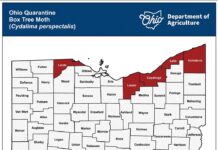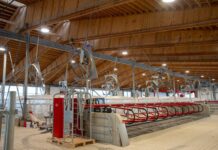Lately, I have found myself wondering what ever became of baseball great Gaylord Perry. The impressive major league baseball pitcher, who boasts a Cy Young award in both the American and National leagues, became famous years ago for quitting baseball to go into farming.
He always said he considered himself a farmer first, a baseball player second. At 47, he had completed 25 major league baseball seasons and felt certain his future was secure. He built himself a future in farming, purchasing a 400-acre farm in North Carolina. In the summer of 1986, he realized that he had struck out at farming. I ran across a clipping of a story that I wrote about this chapter of Perry’s life, and I have had him on my mind ever since.
Economic woes. He told reporters at the time, “We tried everything possible. But when you put $350 in to an acre of corn and get $150 back, it doesn’t take long to say, ‘hey, we can’t continue.'” At the time, he claimed more than $1.2 million in debts and assets of about $1.1 million.
He decided to leave farming before it chewed him up and spit him out.
Sad irony. Part of the irony of this story is that Perry quit baseball and went into farming so that he could spend more time with his son. Just a week or so before this story broke, I had been doing an interview with a young 4-H boy at a county fair. When I asked this boy, a young man who I knew well, if the dairy heifer that we were discussing was a family project, he lowered his eyes and said, “I wish sometimes that my Dad wasn’t a farmer because he doesn’t ever get to come to any of this stuff. He works all the time.”
Those words stuck with me. And I think of Gaylord Perry, who had spent season after season in the training rooms and ball parks of baseball’s highest echelon. He reached a peak that many dream of touching, just once. Nevertheless, Perry yearned to farm. He grew soybeans, corn, peanuts and tobacco on his eastern North Carolina farm.
Lost heritage. He intended to turn that nice patch of land over to his son someday, too. In his talk with reporters, he acknowledged that that would no longer be a part of his plan. “I realize I’d just be passing a liability,” Perry said.
He said of his son, who was 19 years old during this chapter of Perry’s life, “He knows there’s no future in the farming industry.”
Perry said that farming had changed, just like baseball. “There are changes in any business. But what you hate to see are the changes made where this type of business can’t continue.”
Reasons for collapse. He blamed investment factors for his demise, and not the highly-publicized southern drought of the 1980s as one might expect.
“Three years ago,” he said at the time, “I thought corn was going to be $4 a bushel, and beans would go for $9 a bushel. This year, corn is going for $1.50 a bushel and beans are selling for $4.”
This story made news at that time because Gaylord Perry is … well, Gaylord Perry. Perry struck out more than 3,500 batters, winning 314 games. He was a legend who could have gone any direction he wanted to. He chose the path of farming.
Perry summed it up well when he said, “Farmers are the most courageous bunch of guys I’ve ever met.”
Courageous enough to keep swinging at the pitches!
Get 4 Weeks of Farm and Dairy Home Delivered











